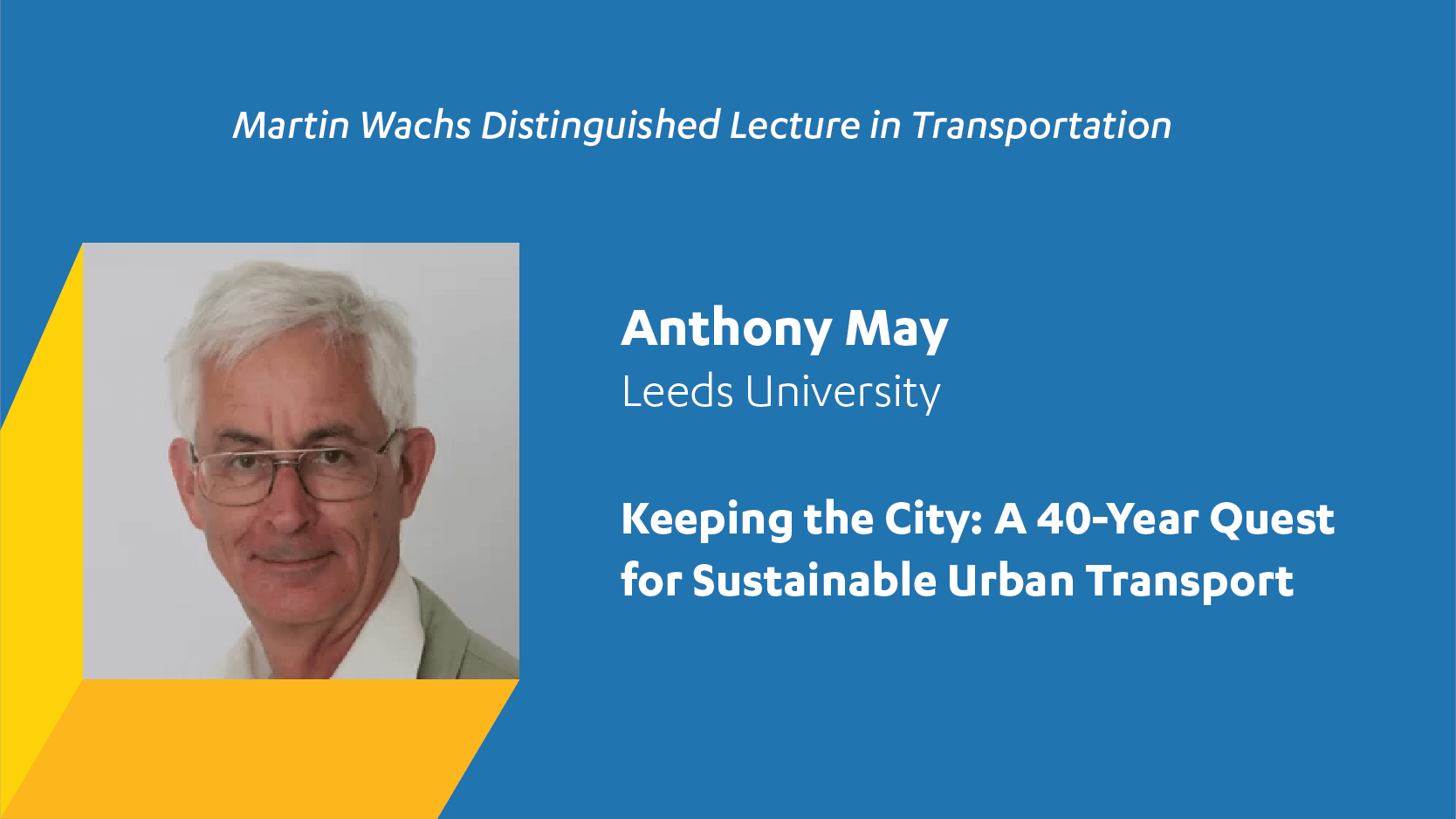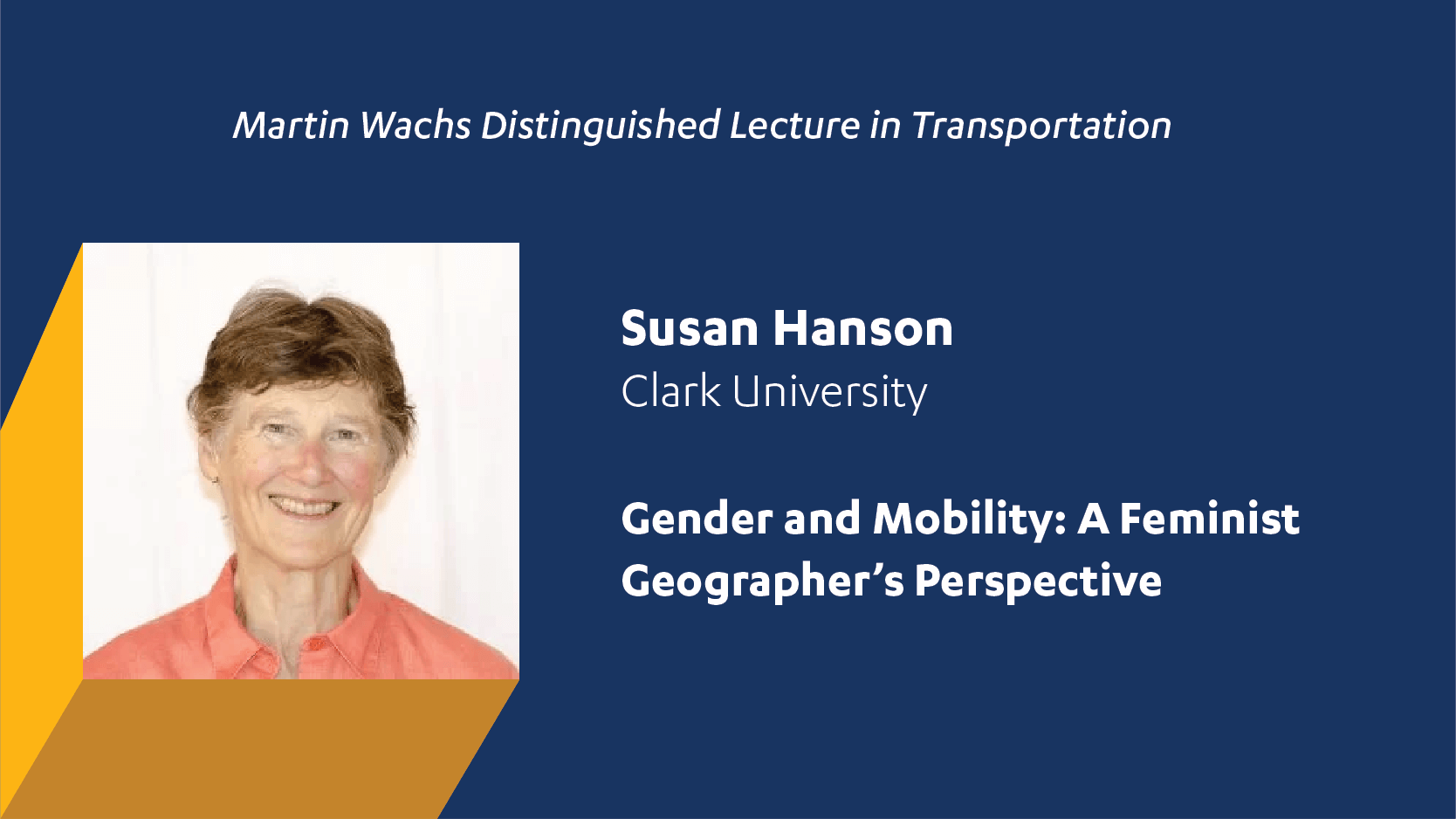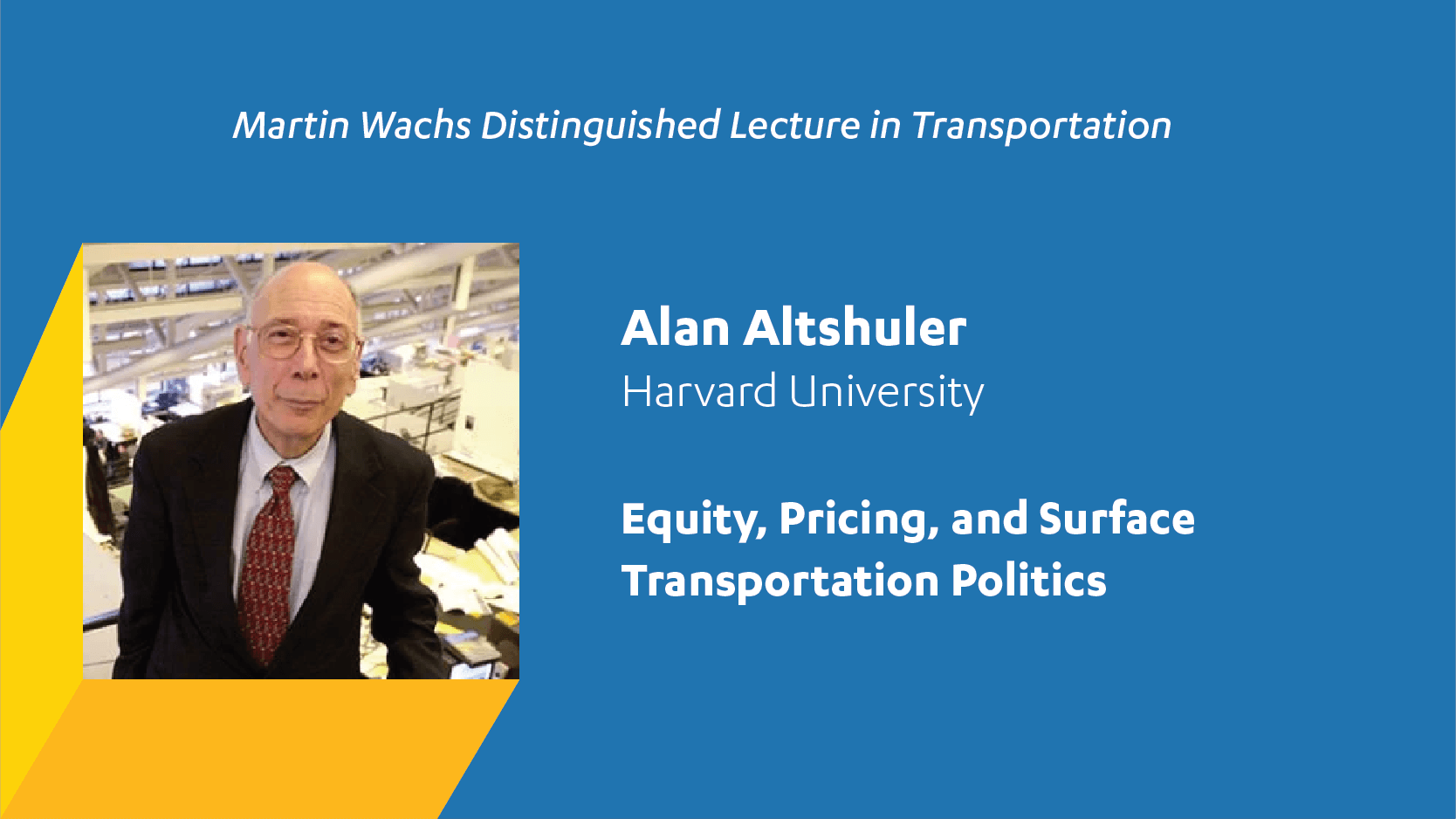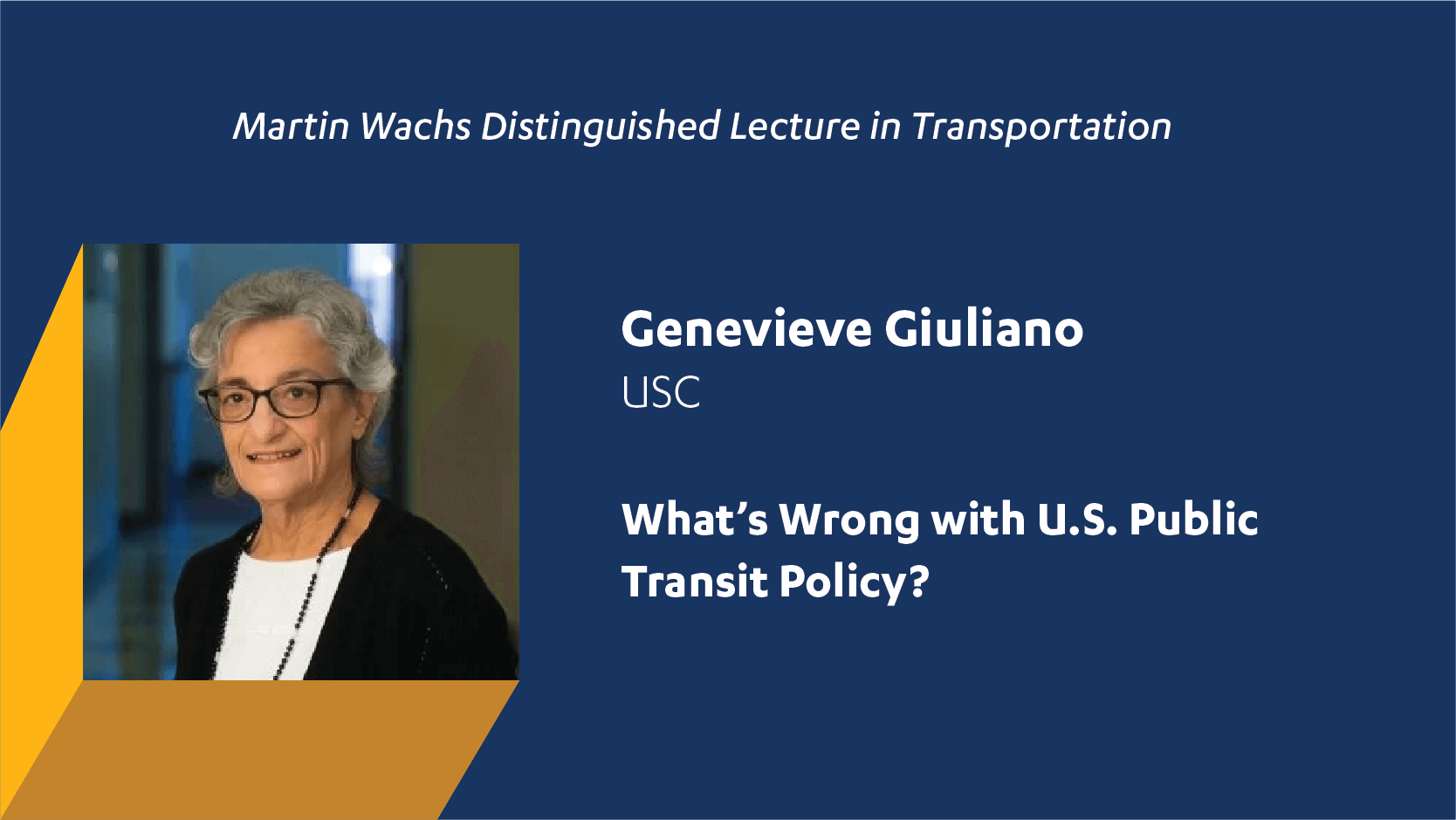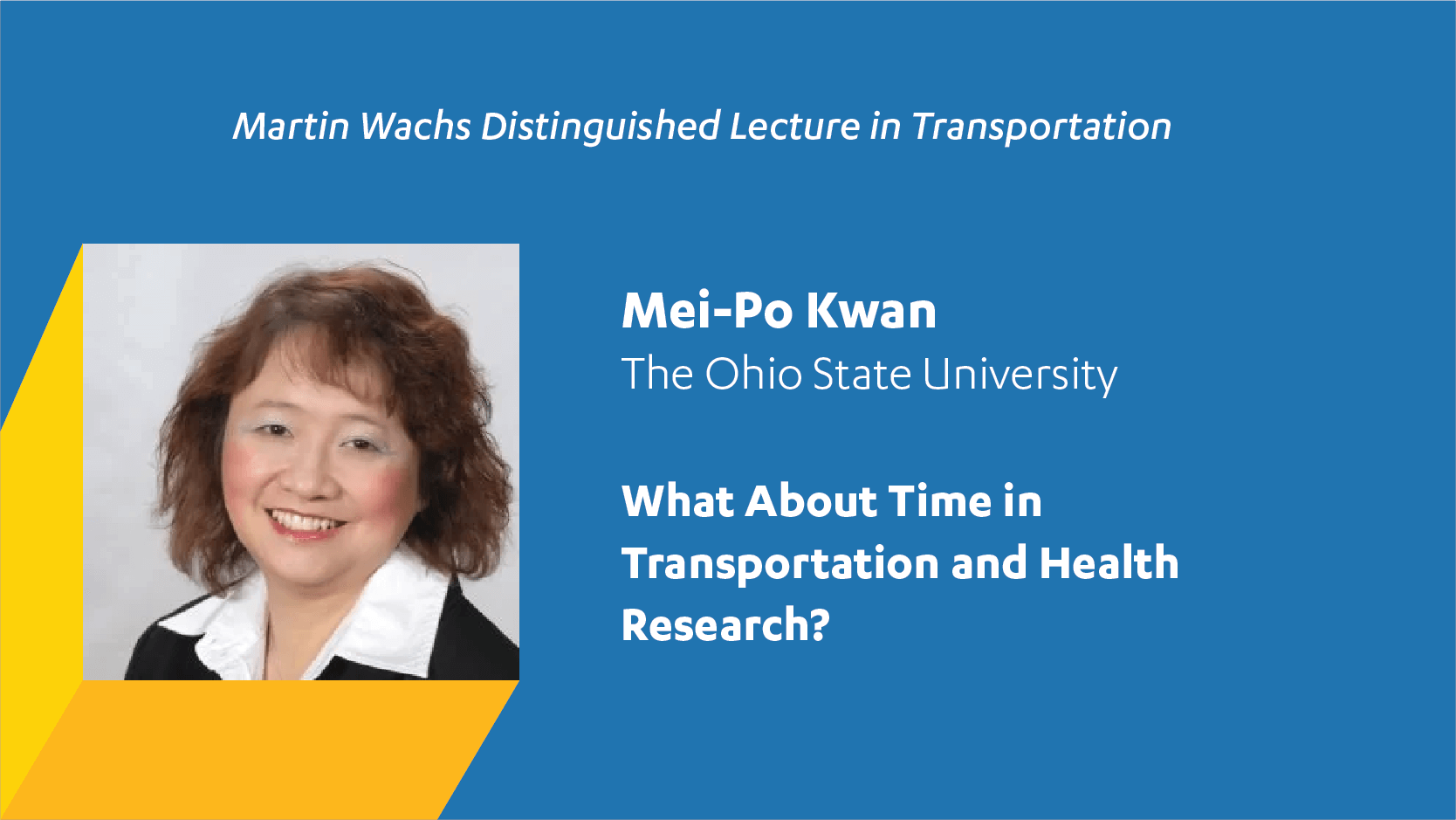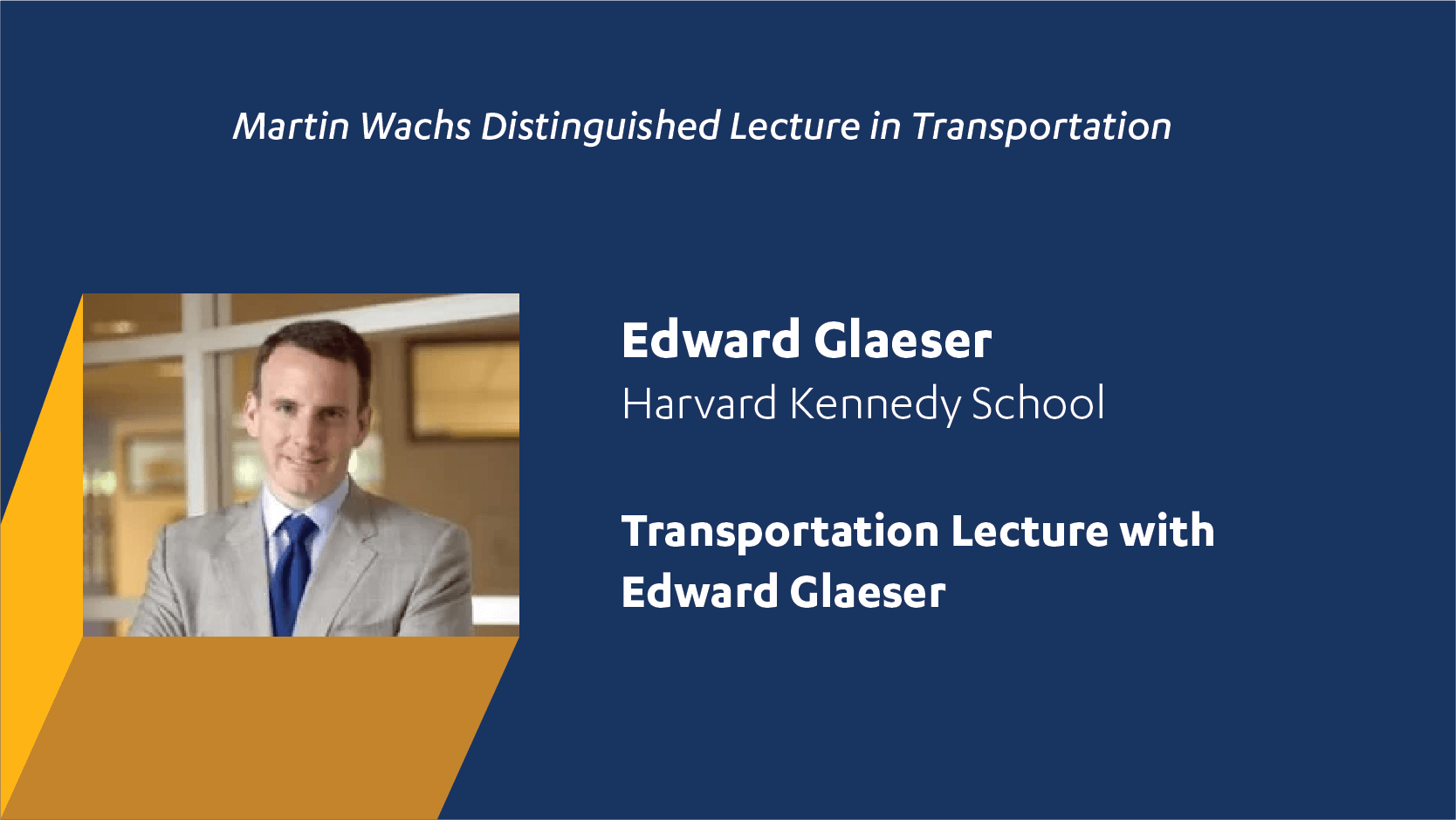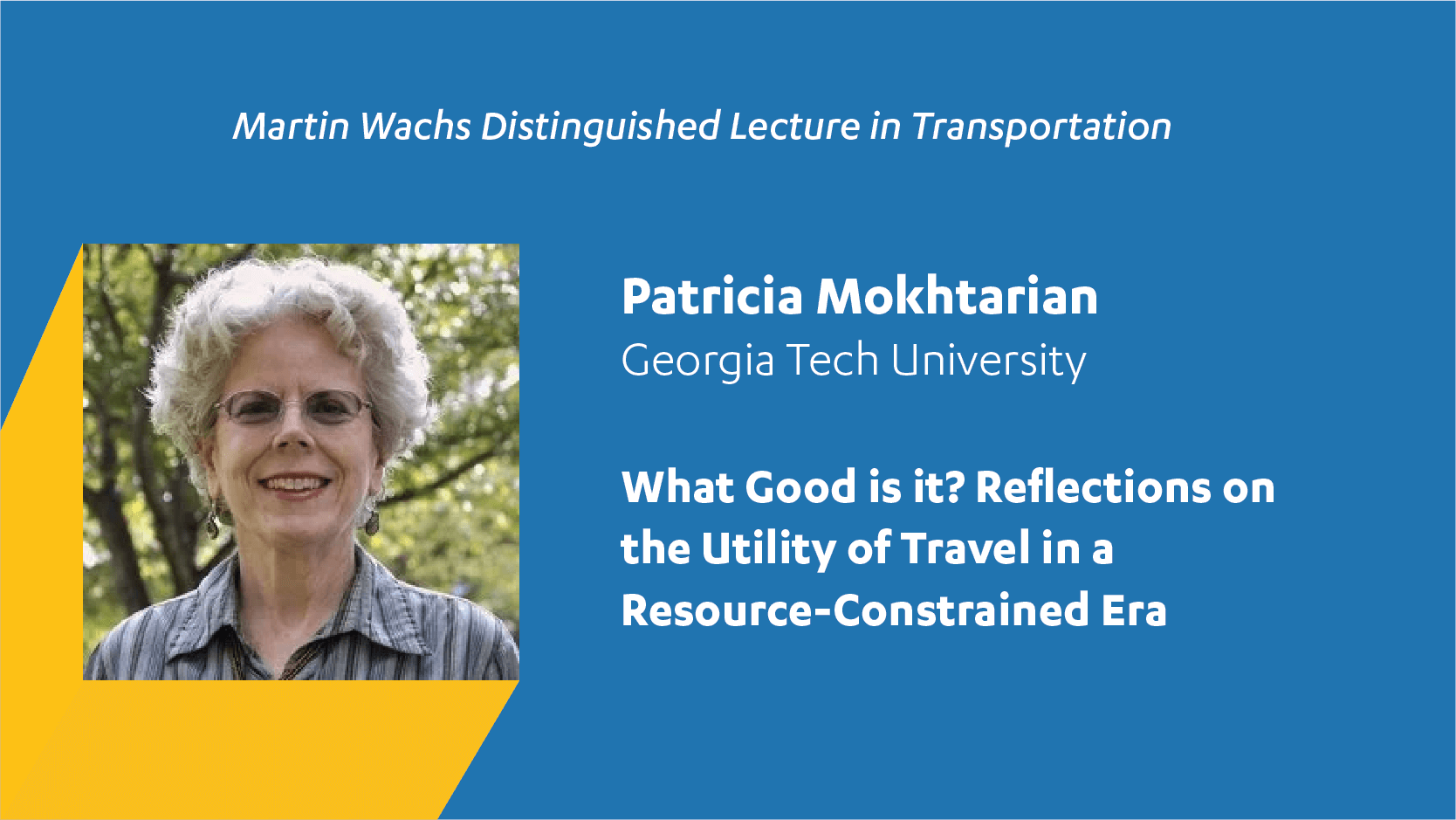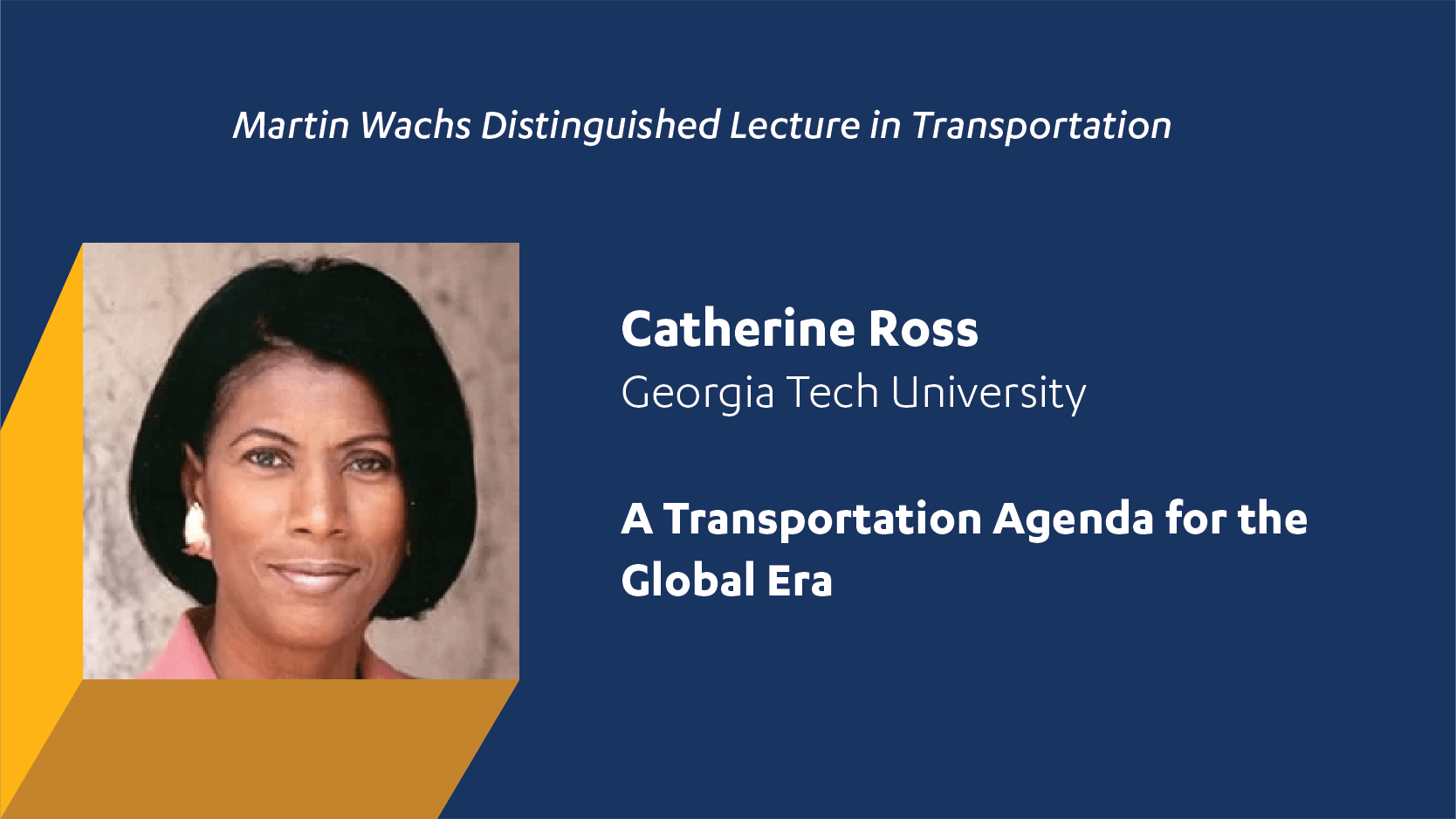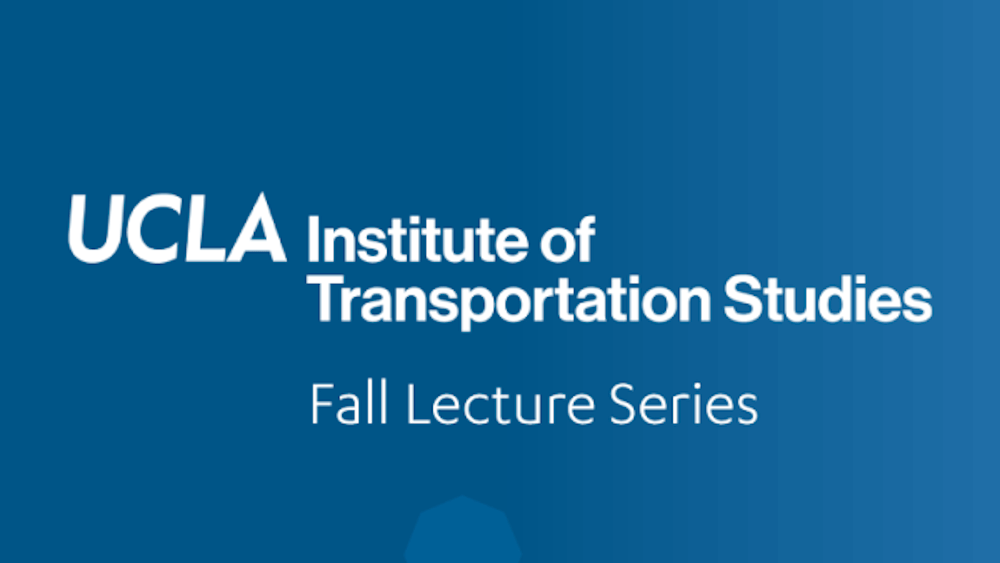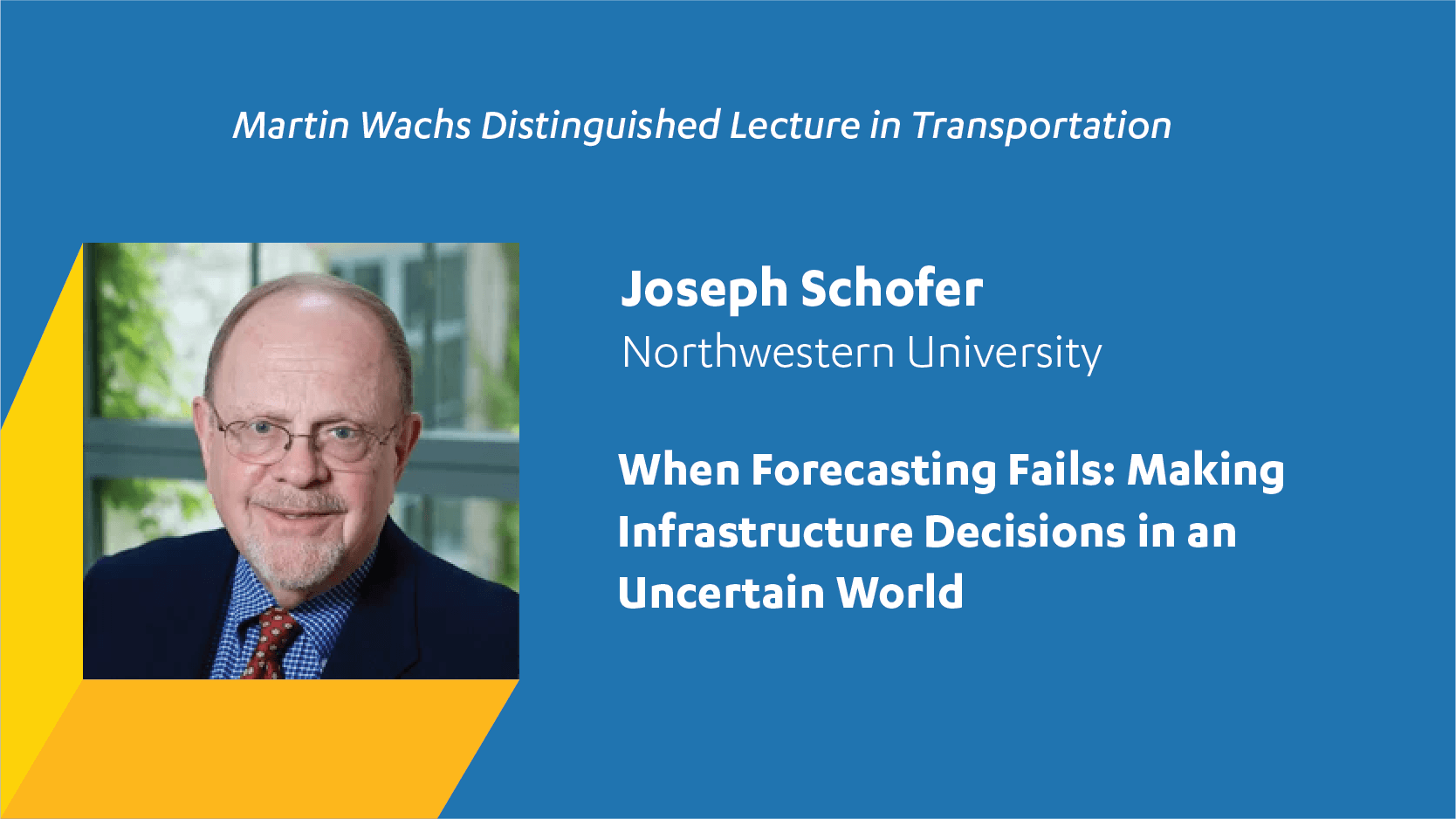Keeping the City
The 2nd annual Wachs Lecture, and the first held at UCLA, was delivered by Anthony May, professor at Leeds University. In his lecture, May explored the history and future of efforts to reduce the environmental footprint of transportation systems and increase their contributions to the sustainability and livability of cities, drawing on his decades of research in the United Kingdom. His lecture was followed by a commentary by Gail Goldberg, then planning director of the City of Los Angeles.


